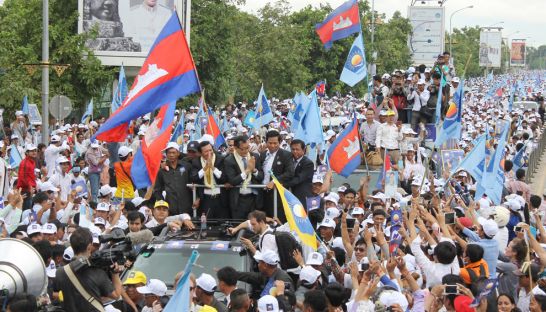World Economic : There’s a light at the end of the tunnel.
Better US economic growth, earnings drive stocks
Steady growth in the U.S. economy and higher company earnings are pushing the stock market higher in early trading.
The Dow Jones industrial average was up 45 points, or 0.3 percent, to 15,566 after the first few minutes of trading.
The Standard & Poor's 500 index was up four points, also 0.3 percent, to 1,690. The Nasdaq composite rose 16 points, or 0.5 percent, to 3,633.
Bond yields rose after the government reported that the U.S. economy grew at an annual rate of 1.7 percent in the second quarter, more than economists were expecting.
The yield on the 10-year Treasury note rose to 2.69 percent from 2.61 percent.
MasterCard rose 3 percent to $620.73 after reporting a 19 percent increase in second-quarter profit as more people worldwide used its cards.
Resource from:
Eurozone jobless down for first time in 2 years
Further evidence emerged Wednesday that the eurozone economy is on the mend after struggling with a recession that's seen unemployment edge toward the 20 million mark.
Figures from Eurostat, the EU's statistics office, showed that the number of unemployed across the 17 European Union countries that use the euro fell by 24,000 in June to 19.27 million. That's the first fall since April 2011 and adds to the weight of recent evidence that suggests the recession in the eurozone has — or is about to — come to an end.
"While the latest data are far from suggesting a quick turnaround, the stabilization provides some relief from the relentless rise in the number of unemployed to date," said Timo del Carpio, European economist at RBC Capital Markets.
The eurozone's economy has been shrinking since the last quarter of 2011 as a raging debt crisis prompted many countries to pursue tough austerity policies that weighed on economic activity and confidence.
However, many analysts think figures next month will show the region may have eked out modest growth during the second quarter, thanks mainly to a rebound in Germany, Europe's biggest economy.
On top of that, other countries' output — even for those at the forefront of Europe's debt crisis — do not appear to be contracting on such a large scale as earlier on in the year.
That's partly due to a combination of the scale of spending cuts and tax increases in certain countries easing in the last few months and a calmer backdrop in financial markets. Another reduction in the European Central Bank's main interest rate to the record low of 0.5 percent has also helped to shore up economic activity.
Figures this week showed that the Spanish recession nearly ended in the second quarter while there are hopes that even Greece — the epicenter of the region's debt woes — may start growing again at the end of this year following a recession that's wiped out around a fifth of the country's output.
Since unemployment started rising again over two years ago, nearly 4 million people have lost their jobs in the eurozone and that's lifted the overall unemployment rate to 12.1 percent from around the 10 percent mark. That provides a stark contrast to the U.S., where the jobless rate has steadily fallen to 7.6 percent.
One of the most damaging effects of the eurozone's return to recession has been an inexorable rise in unemployment particularly of the young. In June, 3.53 million people aged under 25 were unemployed in the eurozone. The unemployment rate among the region's young rose slightly between May and June from 23.8 percent to 23.9 percent.
"A situation in which almost a quarter of young people who are available for work cannot find a job is storing up significant social and economic problems for the future," said Andrea Broughton, Principal Research Fellow at the Institute for Employment Studies.
Overall, the eurozone's unemployment rate was also lower than expected — though at a record high. At 12.1 percent in June, it's unchanged on the previous month following a downward revision to May's original 12.2 percent estimate.
Wednesday's figures are only one month but they do provide some hope that there is now light at the end of the tunnel. In Spain, for example, the number of unemployed fell to 5.96 million from the previous month's 6 million and that pulled the jobless rate down to 26.3 percent from 26.4 percent.
Despite that moderately encouraging signal, Spain's youth unemployment rate rose again in June to 56.1 percent from the previous month's 55.8 percent. The situation in Greece is even worse, with 58.7 percent of under 25s out of work in April, up from the previous months' 58.5 percent — Greece's figures are compiled on a different timeframe. In April, Greece's overall unemployment rate stood at 26.9 percent, just up on the previous month's 26.8 percent.
Wednesday's figures once again highlighted the huge disparities across the eurozone with some countries, such as Austria and Germany operating near what economists term full employment — the level where those seeking work more or less corresponds to those employed.
Separately, Eurostat reported that consumer price inflation in the eurozone was unchanged at 1.6 percent in the year to July, in line with expectations.
Though inflation remains below the European Central Bank's target of keeping annual price rises just below 2 percent, rate-setters are expected to keep the bank's main interest rate unchanged at 0.5 percent following the conclusion of their monthly policy meeting on Thursday.
"Signs that the euro area is emerging from recession and accelerated inflation have eased pressure on the ECB to cut rates," said Tomas Holinka, economist at Moody's Analytics.
Resource from:




































Comments